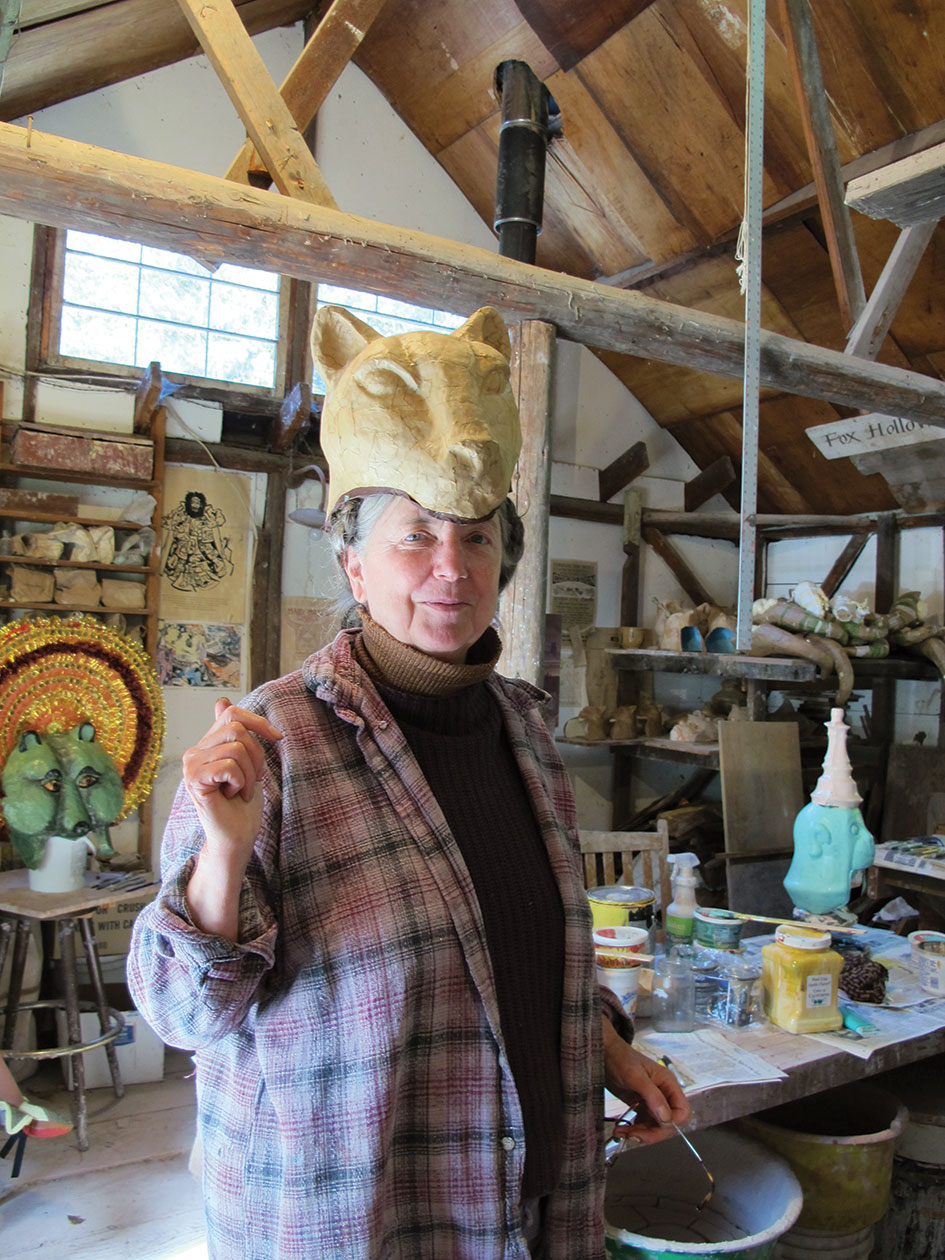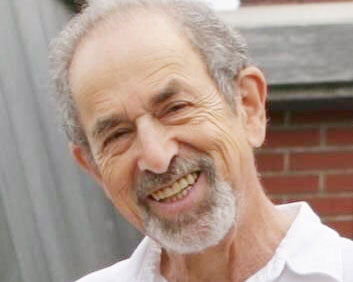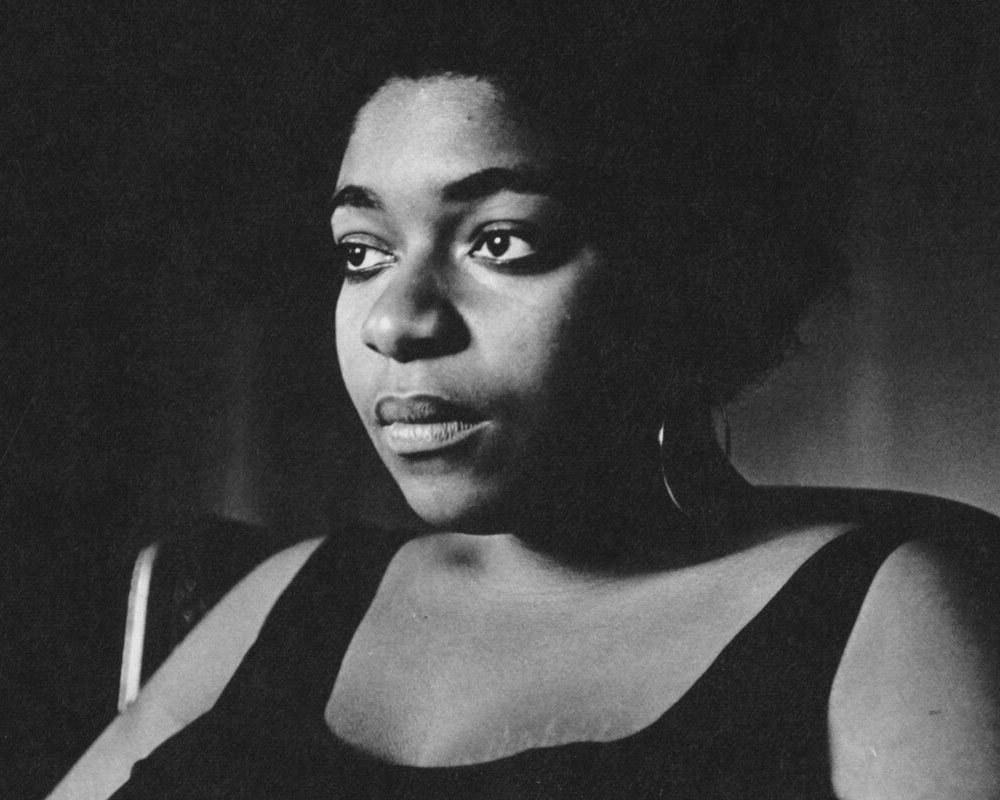Lynn Bowers ’65

February 10, 2018, in Eugene, Oregon, of metastatic cancer.
An accomplished artist and tireless activist, Lynn dwelt in the forest, where she championed ecological land use, toxin-free forests, and other rights of nature.
Born in Lakewood, she graduated from San Rafael High School in California and began working with clay early in her life. She earned a fine arts degree at Reed in a combined program with the Museum Art School (now the Pacific Northwest College of Art). For the first time in her life she felt at home among like-minded people. Reed also supported her inclination to pursue a self-directed and nontraditional career. Lynn wrote her thesis, “The Hang-up: An Attempt to Discover the Proper Relation Between Form and Content in a Series of Ceramic Sculptures,” with Prof. Manuel Izquierdo [art 1953–56] advising. The calligraphic brush strokes she learned in classes with Lloyd Reynolds [English & art, 1929–69] informed her artwork for the rest of her life.
From 1962 to 1980, Lynn attended summer workshops at the Pond Farm in northern California, where she studied with Marguerite Wildenhain, master potter from the Bauhaus and one of the 20th century’s most influential teachers and artists.
“I first came to Pond Farm from Reed College, 19 years old, as agitated and ardent as most teenagers,” Lynn wrote in the anthology Marguerite Wildenhain and the Bauhaus. “The beauty, the quiet, and the clay centered me. Marguerite showed us a simple, dignified and honorable life. … All these years I have made my living by my hands and have never been an employee. Marguerite gave me the core, and I have wound my life around it.”
Lynn worked in ceramics, sculpture, painting, and costume design. In 1971, she established Fox Hollow Pottery in Eugene, Oregon, where she designed costumes for the ballet, theater, and opera; created ceramic sculptures and pottery; and painted residential murals for clients. Lynn created masks, puppets, and costumes for everything from Die Fledermaus to Swan Lake. It took her two years to construct the masks and puppets for Mowgli, a ballet based on Rudyard Kipling’s Jungle Book, which premiered at the Eugene Ballet. Her “mad cow” suits for a Eugene Earth Day celebration earned her the Eugene Weekly’s accolade as best artist of 2004.
Lynn lived simply on her rural land without benefit of a computer, microwave, or television. As a forestland dwelling activist, she tirelessly championed rights of nature. She pioneered forest mapping and originated and was president of Forestland Dwellers, a neighborhood nonprofit group that investigated pesticides in forestry and collaborated with University of Oregon scientists to invent collection systems for bioassays of pesticide drift. Lynn made maps, documented statistics, wrote essays, gave speeches, and held prayer circles at corporate timber offices. She was appointed to a county advisory committee examining vegetation management and testified at the Oregon Board of Forestry on the inadequacy of forest practices rules, and was president of the Northwest Land Conservation Trust.
It is likely that Lynn would have been an artist without attending college. But the things she learned at Reed—how to write concisely and evaluate evidence (Is it plausible? Is it true? Does the evidence actually support the assertion?)—helped her cut through the red tape and hype of herbicide spray practices being used for forest management in Oregon. Being an activist was less than a stone’s throw from Lynn’s work as an artist. Both demonstrated a commitment to living simply and whole, and stewardship of the gifts she had been given: a keen eye, a sharp intellect, and a passion for things of the earth. She is survived by her husband, Alan Foster.
Appeared in Reed magazine: September 2018





![Photo of Prof. Marvin Levich [philosophy 1953–94]](https://www.reed.edu/reed-magazine/in-memoriam/assets/images/2022/LTL-levich1.jpg)
![Photo of President Paul E. Bragdon [1971–88]](https://www.reed.edu/reed-magazine/in-memoriam/assets/images/2020/Bragdon.jpg)
![Photo of Prof. Edward Barton Segel [history 1973–2011]](https://www.reed.edu/reed-magazine/in-memoriam/assets/images/2020/Segel.jpg)








































































